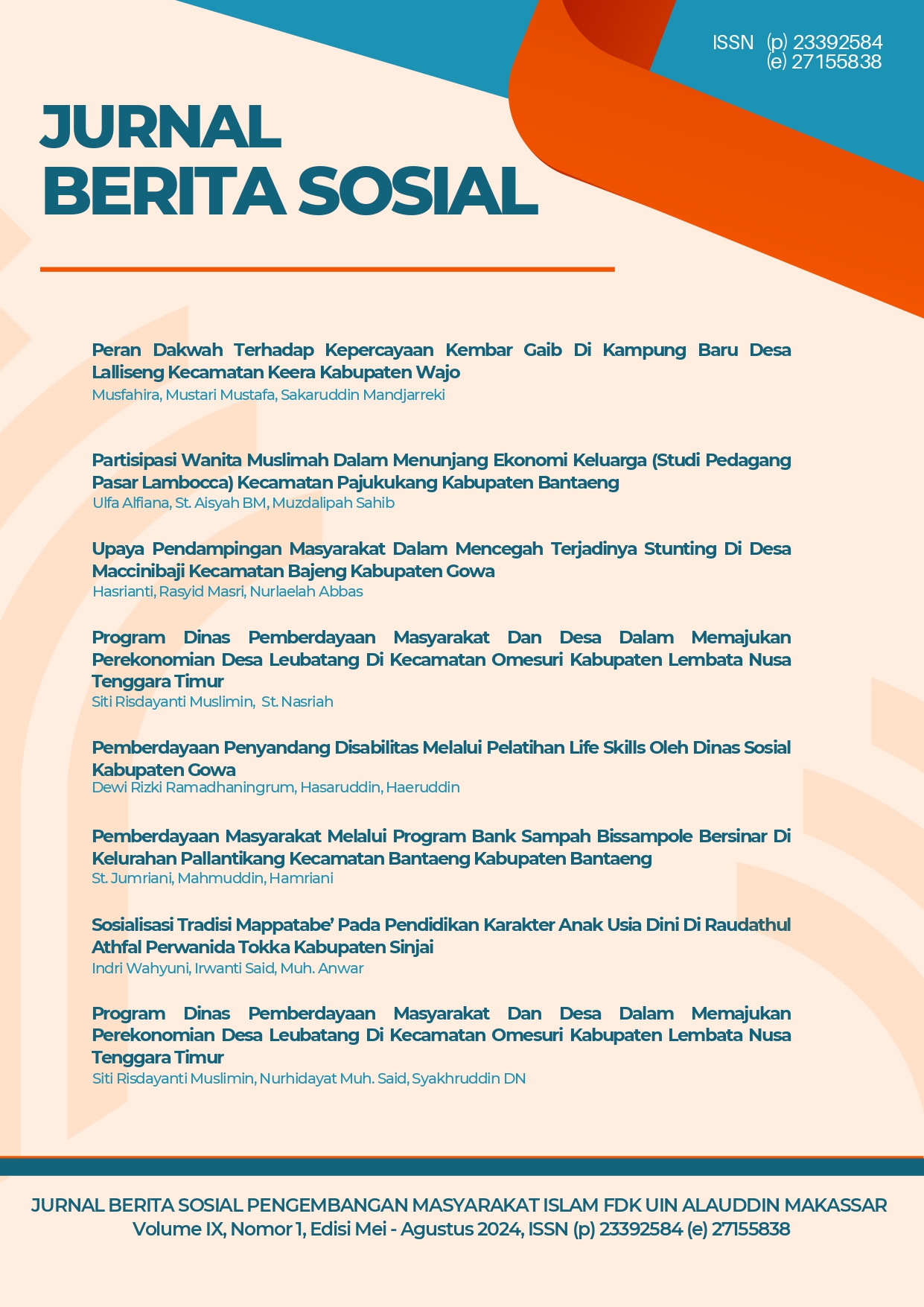Pemberdayaan Penyandang Disabilitas Melalui Pelatihan Life Skills Oleh Dinas Sosial Kabupaten Gowa
Abstract
This study uses a descriptive qualitative research type located at the Loka Bina Karya Pallangga Building in Gowa Regency. The primary data sources of this study are the Head of Social Services and Rehabilitation, the Chairman of the Indonesian Disabled Persons Association of Gowa Regency, and the community of persons with disabilities. The secondary data sources are books, theses, journals, literature, and other data sources that can be used as complements. The data collection methods are observation, interviews, and documentation. Data analysis is carried out in three stages, namely data reduction, data presentation, and conclusion drawing. Based on the results of this study, there are five stages of empowering people with disabilities carried out by the Social Services Department of Gowa Regency, namely Social Rehabilitation Guidance, Resocialization Guidance, Evaluation (Monitoring), Termination, and Follow-up Guidance. The supporting factors in the empowerment of people with disabilities through life skills training by the Social Services Department of Gowa Regency are complete facilities and infrastructure, as well as trained human resources. The inhibiting factors are differences in educational and intellectual backgrounds and ethical or psychological factors of people with disabilities. The implications of this study are expected to encourage the Social Services Department of Gowa Regency to improve and maintain empowerment activities for people with disabilities that are comfortable and make them feel treated equally with non-disabled people. Additionally, it is hoped that they can increase the types of skills training for people with disabilities if their number increases, so they have more options to choose which skill field they want to enter. This will help to increase the number of people with disabilities in Gowa Regency who have not been empowered, giving them the opportunity to be empowered and employed well according to their conditions, thus producing more creative and independent people with disabilities.

